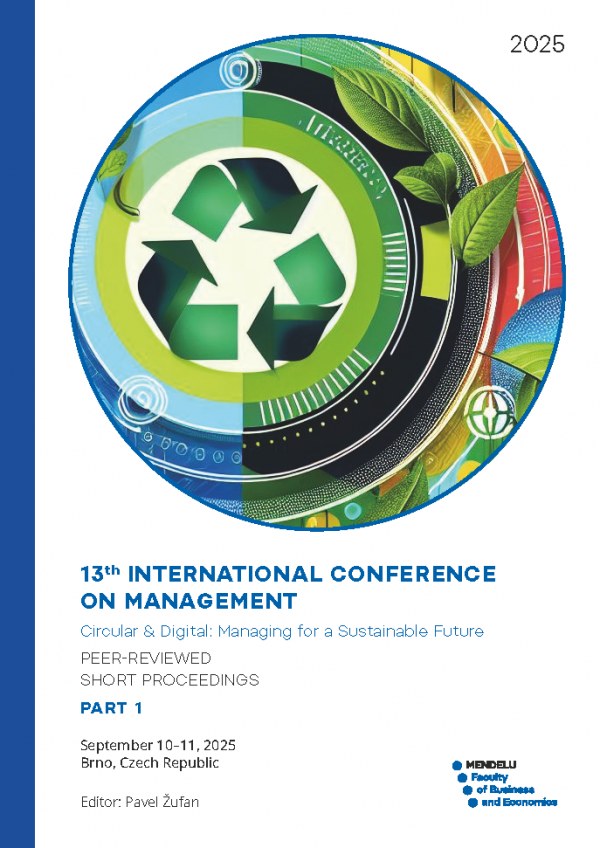
DOI: 10.11118/978-80-7701-042-9-0101
THE ROLE OF CIRCULAR ECONOMY IN THE EU’S STRATEGY FOR CRITICAL RAW MATERIALS
- Gábor Papp1, Róbert Magda2
- 1 John von Neumann University Doctoral School of Management and Business Administration, Infopark sétány 1., Budapest, Hungary
- 2 John von Neumann University, H-6000 Kecskemét, Izsáki u.10., Hungary; Vanderbijlpark Campus, North-West University, Vanderbijlpark 1900, South Africa
Circular economy is becoming an increasingly important part of the EU’s strategy related to critical raw materials, because the green transition has become an increasingly important geopolitical factor. Meanwhile, the EU is lacking some critical raw materials which are indispensable to produce the devices enabling the green transition. In this case recycling could emerge as a key tool to enable higher availability of these elements as secondary raw materials. The problem is however, that many of these elements currently have a very low end-of-life recycling ratios. This is especially true regarding rare earth elements, with one of their particularly important field of use, the permanent magnets. Finally, future demands which are hard to be predicted only make planning even more difficult.
Klíčová slova: European Green Deal, green transition, circular economy, rare earth elements, permanent magnets
stránky: 101-102, online: 2025
Reference
- European Council. 2025. European Green Deal. https://www.consilium.europa.eu/en/policies/european-green-deal/
- Carrara, S. et al. 2023. Supply chain analysis and material demand forecast in strategic technologies and sectors in the EU - A foresight study. European Commission, JRC Science for Policy ReporT, 2023.
- Grohol, M., Veeh, C. 2023. Study on the Critical Raw Materials for the EU. Final Report. European Commission.
- European Commission. 2025. Commission selects 47 Strategic Projects to secure and diversify access to raw materials in the EU. https://ec.europa.eu/commission/presscorner/detail/en/ip_25_864


